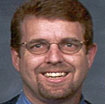Commentary on Psalm 146
This psalm of praise resonates with peace and justice.
Make that divine peace and justice. In this psalm, it is the Lord who is given all of the credit for executing justice in behalf of the oppressed, for feeding the hungry, for setting prisoners free, for opening the eyes of the blind, etc. On the other hand, the psalm declares that for those seeking help from their fellow human beings, well, “there is no help.” So much for “God’s Work, Our Hands”?
The texts appointed for the day suggest the theme “Be Rich in Good Works”–as in verse 18 in the 1 Timothy 6 pericope. The Old Testament passage from Amos threatens wealthy folk who are not grieved by injustice. And Jesus’ tough parable of Lazarus and the unnamed rich man fairly forces a double-edged self-reflection: “Am I rich like the rich guy in the story?” and “Have I done enough for the Lazaruses of the world?” Although it is not quite the Parable of the Sheep and the Goats (in Matthew 25), the story about Lazarus and the rich man suggests a similar separation: Do-gooders on one side; non-do-gooders on the other.
Psalm 146 offers a correction of sorts. The psalm proclaims that the Lord is the ultimate do-gooder. The psalm counsels that where justice is concerned, we ought to put our trust in the Lord and not “in princes, in mortals.” In this way the psalm offers (at the very least) a useful reminder that our civic dealings are penultimate, that our political endeavors are bound to perish.
Psalm 146 not only praises the Lord for his mighty deeds, it also proclaims a realistic despair concerning human righteousness. Indeed, the psalm bears witness to Martin Luther’s twin theses: “One is not righteous who does much but who, without work, believes much in Christ” and “The Law says ‘Do This’ and it is never done; Grace says ‘Believe This’ and it is already done.”1
If the rich man in the parable in Luke 19 had remembered Psalm 146, the outcome may have been different. When the rich man was confronted with ignoring Lazarus’s needs, he might have protested: “But the Psalm declares that the Lord gives food to the hungry and that in mortals there is no help!” To which Lazarus, there in Abraham’s bosom, might have responded: “He’s got a point.” To which Abraham might have said, “There does appear to be a loophole here. I better run upstairs and check it out with the big guy.” Upon returning, Abraham might have proclaimed the following to the rich man: “Well, I checked it out. And the Lord told me to tell you: ‘In the mercy of Almighty God, Jesus Christ was given to die for you and for his sake God forgives you all your sins.'”
Like the chasm between poor, ol’ Lazarus and that rich man in the Gospel parable, there will always a yawning abyss between our notions of righteousness and the righteousness of God. This is why, for Christians, the flow of divine activity is “down and out”: God’s righteousness flows down upon believers who, inspired and empowered by the Spirit of the living Christ, live out the divine righteousness through various vocations that benefit the neighbor. Chasm closed.
1Martin Luther, The Heidelberg Disputation, theses 25 and 26.

September 26, 2010